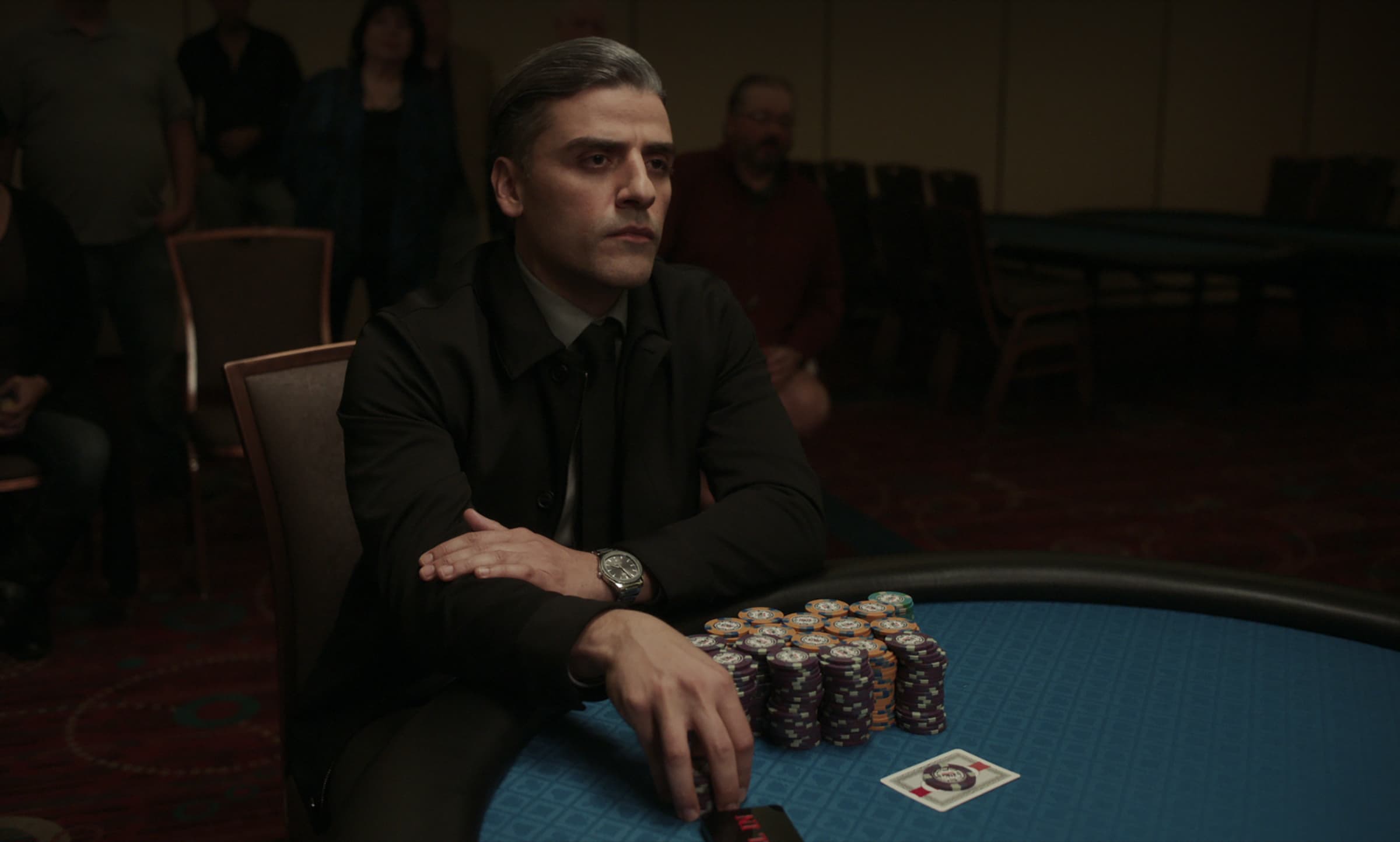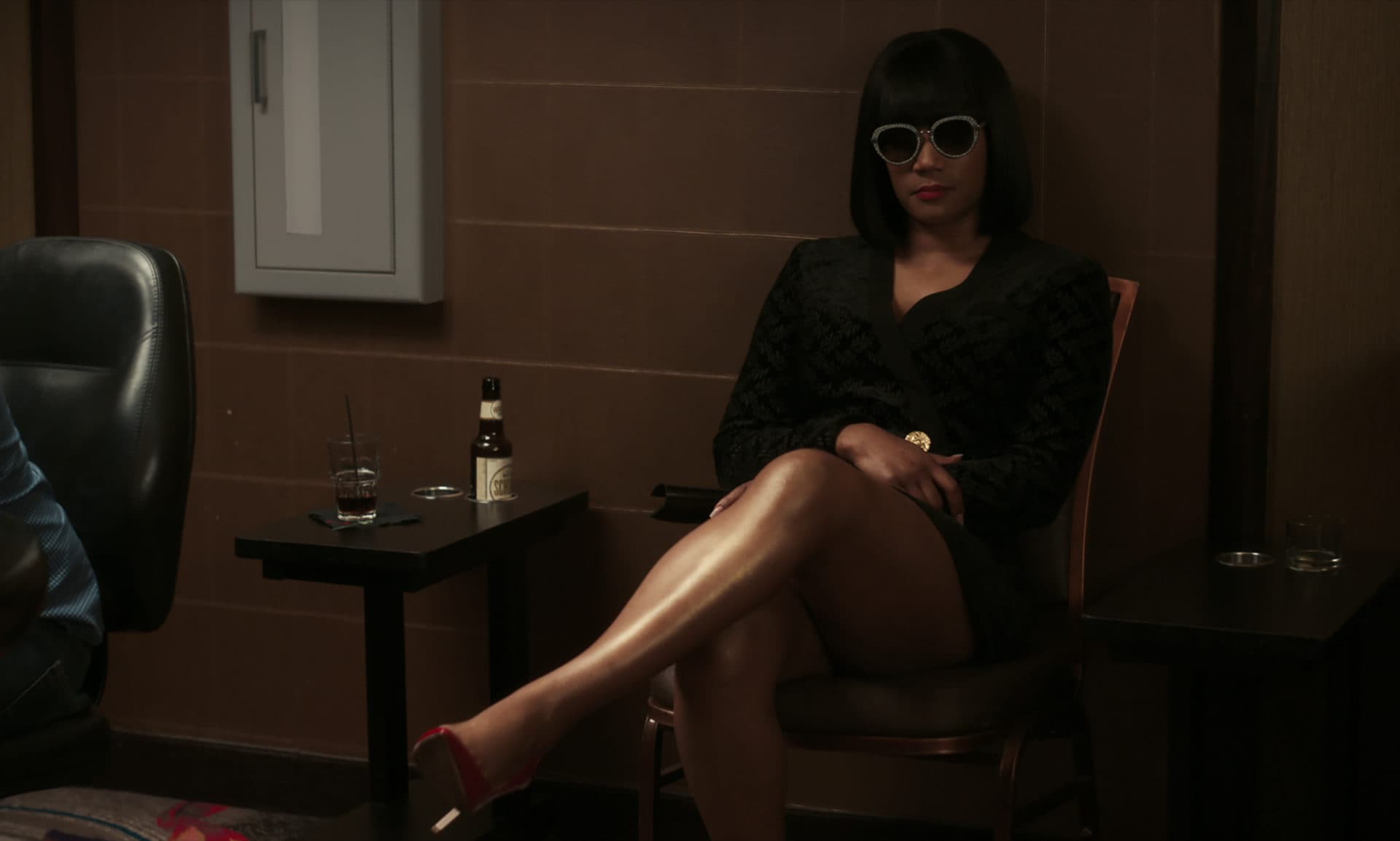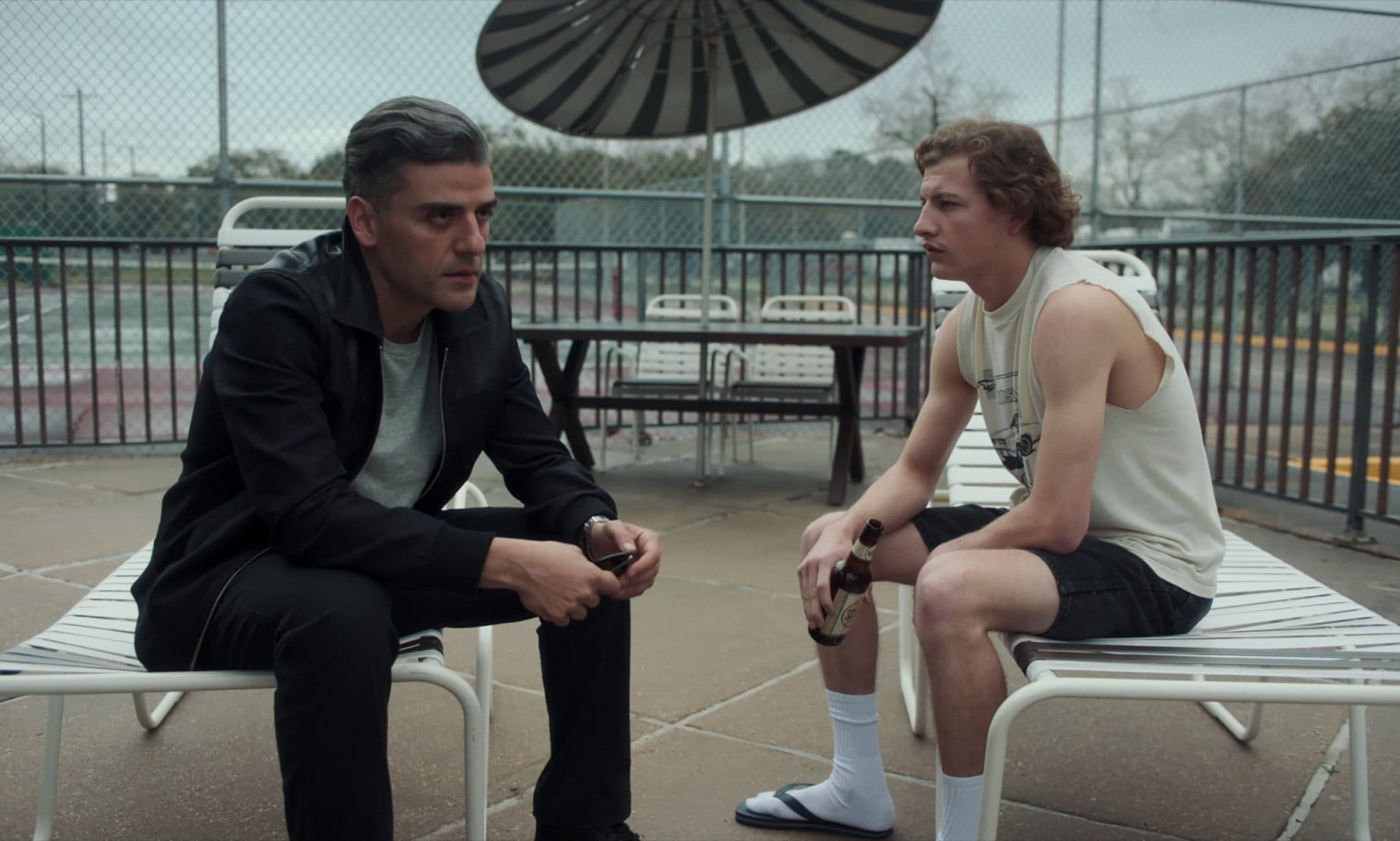Advertisement
Review
In 'The Card Counter,' Oscar Isaac Plays A War Vet In A Self-Made Purgatory Seeking Redemption

“Is there a limit to how much it takes to reach expiation?” asks the protagonist of Paul Schrader’s “The Card Counter.” It might be a better question for Schrader himself, who has spent the past five decades chronicling sinners struggling to find their own paths to atonement in the silence of an absent God. His first produced screenplay, 1974’s “The Yakuza,” starred Robert Mitchum as an ex-GI returning to Japan and cutting off a finger to try and make things right with the husband of a woman he romanced during WWII. Nearly 50 years and several wars later, “The Card Counter” stars Oscar Isaac as an Iraq vet anguished by the atrocities he committed at Abu Ghraib, self-sentenced to a purgatorial, joyless existence haunting the tables of mid-tier casinos like a ghost.
He calls himself William Tell, which even without the Rossini reference is a pretty funny name for a poker player. He learned to count cards in prison, but deliberately never wins big, preferring to play in smaller, out-of-the-way places. He likes to stay under the radar. William takes no joy from the game, which for him is a mind-numbing mathematical exercise. “It passes the time,” he sighs. Tell turns his hotel rooms into cells, removing art from the walls and wrapping the furniture in off-white sheets. Like so many Schrader characters before him, he’s a compulsive diarist, scrawling scary thoughts into a composition book alone at night a la Robert De Niro in “Taxi Driver,” Willem Dafoe in “Light Sleeper” or most recently, Ethan Hawke’s tormented Reverend Toller in Schrader’s 2018 masterpiece “First Reformed.”

He calls these his “men in a room” movies, an informal series of sorts that also includes Schrader’s “American Gigolo” and its 2007 pseudo-sequel “The Walker.” They’re hothouse character studies cooked up from the former film critic’s fixations on Robert Bresson’s “Diary of a Country Priest,” John Ford’s “The Searchers,” samurai rituals and suicidal ideation. “First Reformed” felt like a cutting-edge culmination of Schrader’s career obsessions: the only American film to meaningfully confront climate change did so via its director’s strict Calvinist upbringing using formal elements explored in his 1972 book “Transcendental Style in Film: Ozu, Bresson, Dreyer.” After an IFFBoston screening in 2018, Schrader confided to the crowd, “I hope this is not my last film. But if it is, it’s a very good last film.”
"First Reformed" was probably an impossible act to follow. But while “The Card Counter” doesn’t bring much new to the table, it’s tough to resist yet another stroll through this 75-year-old legend’s timeworn preoccupations and peccadilloes. Our protagonist’s monastic self-abnegation is interrupted by two people. First, a sultry stakehorse (Tiffany Haddish) who spots his skills and wants to back Tell on a trip to the World Series of Poker. The other is a disturbed young man called Cirk (Tye Sheridan) whose father served alongside Tell under a sadistic military contractor, played with terrifying brio by Willem Dafoe in his eighth Schrader picture. The kid wants to kill the old man for revenge, but Tell’s got his heart set on redemption. Since you know who wrote and directed the movie you’ve probably already guessed that this is all going to end in blood.
Unlike his friends and sometime collaborators Martin Scorsese and Brian De Palma, Schrader is hardly a florid filmmaker, instead favoring spartan set designs and icy, contemplative frames. Most movies that take place in casinos amplify either luxury or sleaze, while “The Card Counter” captures the antiseptic anonymity of gaming chains. This deliberately blank visual palette is disrupted by the filth-strewn flashbacks to Abu Ghraib, shot by cinematographer Alexander Dynan with a wraparound fisheye lens that warps the image into nightmarish, distended proportions, imprinting on us the horrors running constantly through Tell’s head.

Isaac’s a perfect frontman for this kind of film. Underneath his impeccable appearance is a natural smolder suggesting that the character’s physical precision and addiction to routine are the only things keeping him from exploding. (He’s so composed that a stray lock of hair falling into his eyes feels like a volcanic eruption.) Haddish comes off as a bit adrift, surprisingly strong in some scenes and at a loss in others. She and Sheridan aren’t exactly aided by an underwritten surrogate family dynamic that’s more implied than dramatized, no matter how often the two adults refer to Cirk as “the kid.”
In returning to and refining so many familiar elements from Schrader’s filmography, “The Card Counter” reminded me of how at the end of his career Howard Hawks decided to just keep remaking “Rio Bravo” over and over and nobody minded. Here, the director restages the final shot of Bresson’s “Pickpocket” for a fourth time, in case you hadn’t previously caught the reference in “American Gigolo,” “Light Sleeper” and “The Walker.” Even the music is an echo of sorts, with Black Rebel Motorcycle Club’s Robert Levon Been bellowing a reasonable facsimile of his father Michael’s doomy anthems from “Light Sleeper.” Some will no doubt roll their eyes at such repetitions but for me they felt like hearing an old classic rock band launch into a greatest hits medley, maybe a little sloppier and behind the beat sometimes, but still playing their hearts out. Luckily for Schrader fans, expiation has no limits.
“The Card Counter” opens in theaters on Friday, Sept 10.
